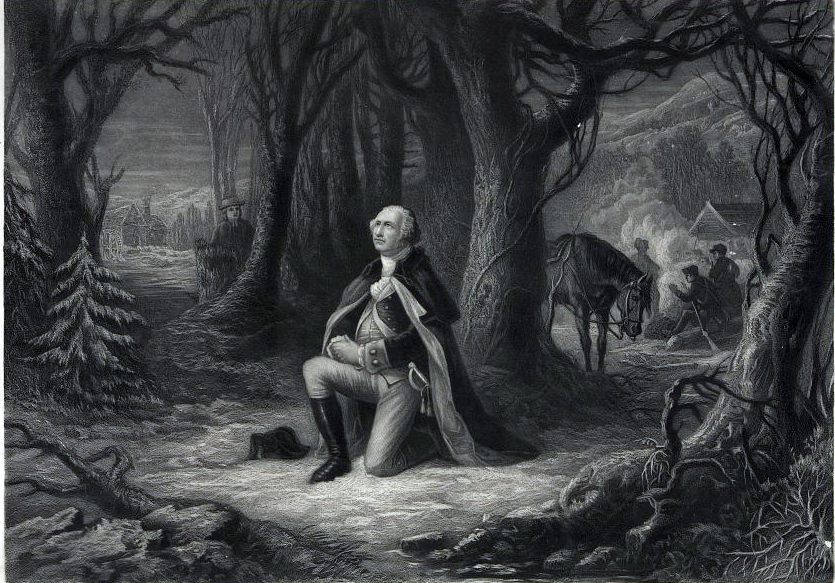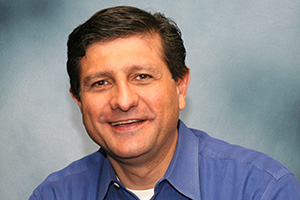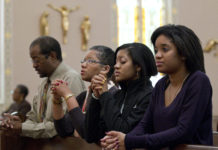
Last year I wrote a column about how love conquers hate. That was true then, and it’s still true now. But as global terror rages on, as global economic crises loom, and as national security concerns hang over our heads like a wet rag on our spirits, maybe it’s important to also realize that love beats fear too when the chips are down.

Because all that hate threatens to paralyze us with fear. Or worse still to tempt us to react fearfully by lashing out impulsively and irrationally at whosoever and whatsoever we see as a source of that threat or hate. But that type of panic would only lead to chaos in the long run in our lives, in our nation and in our world.
In contrast maybe the most inspiring emotion human beings have to protect and change the world for the better is that Christian tenet known as love. And just in case you are wont to dismiss that as feel good rhetoric, a good rebuttal comes courtesy of our greatest president: George Washington. There is a little known story about this great man and how he saved this nation from falling apart before it ever got started that really drives home the power of love in times of turmoil.
As the story goes, as the Revolutionary War came to a victorious close for the brand new United States, a frightening moment occurred as officers of the Continental Army met to discuss refusing to give over control of the nation to a civilian government. They were angry because of Congress’ refusal to honor its promises to the Army regarding salary, bounties and pensions, and they were concerned because they heard the country was going broke. So they began to consider that military rule would be a better route for the nation.
Now if that happened, chances are the United States would probably have gone the way of so many other banana republics where revolutions turned into military coups leading to strongmen dictators taking over and destroying any chance of real democracy. This was a turning point for the new nation to be sure.
Unexpectedly Washington himself showed up at the meeting and gave them a little talking to. But to be honest all his well-spoken words fell on deaf ears, as the men begrudgingly stuck to their guns — literally.
Then after finishing his talk, Washington proceeded to read a letter from Congress explaining the complex difficulties of the new republic in more detail. As he began to read the letter his eyes squinting because of the small writing, Washington suddenly stopped. He then reached into his coat pocket and took out a pair of reading glasses. Now his men had never seen the great general wear reading glasses. Glasses at the time were a sign of weakness and vulnerability.
“Gentlemen,” said Washington, “you will permit me to put on my spectacles, for I have not only grown gray but almost blind in the service of my country.”
In that single moment, Washington moved every one of those strong and powerful men to tears and shame, as they saw how much this incredible man had given to the country and had given up for the idea of a democratic nation. Washington finished reading the letter and left without another word. His officers then voted unanimously to yield power to Congress and the civilian government. Democracy in America was preserved.
Now those men were gripped by fear that the military would be left out in the cold by the new nation, and that civilians didn’t have what it took to run the government effectively. Washington could have threatened them, or he could have given them a tutorial on all the horrors that would happen if the military took over. But instead he simply reminded them of his love and devotion to this nation and to the people and the ideas it stood for, and hence reminded them of their own love and affection for it. And that is all it took.
Arguably the most powerful nation to ever exist on Earth persevered because of love, not fear. And it is our continued exercise of that love that has made us “a shining city on a hill,” as early Puritan founder John Winthrop first referred to it — a place where God’s will for good, just and righteous government is practiced wisely.
Fear to be sure is a motivator, but only in the short run. It makes us react quickly to emergencies and imminent danger. But in the long run it loses its strength and reduces us to our base reactionary self. Love lingers longer and builds us up to our greatest potential self. It can move mountains and change the world.




![[VIDEO] Make Sunday feel like Sunday again](https://www.catholicsun.org/wp-content/uploads/2021/04/2021-YOUTUBE-BISHOP-MESSAGE-THUMBNAIL-ENGLISH-218x150.png)

